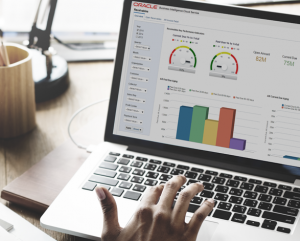Editor’s Note: This guest blog post comes courtesy of Gail Cole with Avalara.
In addition to the usual end-of-year activities, businesses of all sizes need to consider something new this year: The effects of 2018 on sales tax compliance in 2019.
New sales tax requirements for remote sellers are coming online in numerous states since the June 2018 decision by the Supreme Court of the United States in South Dakota v. Wayfair, Inc. Prior to the Wayfair ruling, businesses needed to have a physical presence in a state in order for the state to require it to collect and remit sales tax. In Wayfair, the court found this physical presence requirement to be “unsound and incorrect.”
Guide to Oracle Cloud: 5 Steps to Ensure a Successful Move to the Cloud
Explore key considerations, integrating the cloud with legacy applications and challenges of current cloud implementations.
Consequently, a remote seller’s “economic and virtual contacts” (economic nexus) with a state can now trigger a sales tax collection obligation in close to 30 states, and counting.
To determine whether economic nexus exists in these states for 2019, businesses need to review their 2018 sales into each state. All economic nexus states allow an exception for small sellers: A sales tax collection obligation isn’t necessarily triggered on the first sale into a state, or even the 150th.
In some states, for example, sales tax compliance is required only for remote retailers that in the current or previous calendar year had more than $100,000 in sales or at least 200 transactions in the state. In others, the threshold is at least $250,000 in sales in the state, plus additional activities. Each economic nexus state’s threshold — including which sales are including in the threshold — is unique.
While the small seller exception relieves some businesses from sales tax compliance in some states, it also requires heightened monitoring of economic activity in all economic nexus states. A sales tax collection obligation may be required in a state as soon as the threshold is met, and that can happen at any time. And if the threshold was met in one or more states at the end of 2018, businesses will have to collect and remit sales tax in those states throughout 2019.
Learn more about the lingering effects of economic nexus in this Avalara blog

